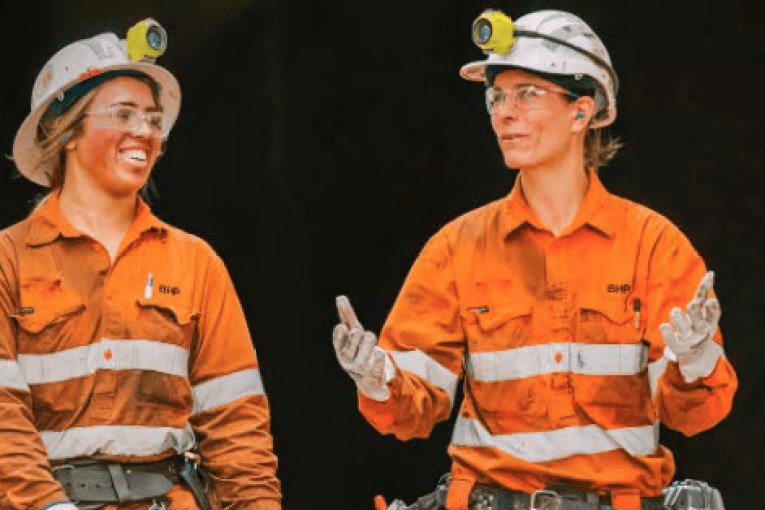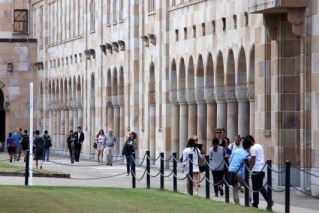There’s a new benchmark for successful investors – and it has little to do with money
Investing used to only be about money. Now investors have to weigh up their impact on the world as ESG becomes a potent weapon on the markets, as John McCarthy reports


Business confidence in Queensland jumped following the election
The global investment markets are now shadowed by superannuation and investment funds that control a large chunk of the ASX 200. For them, money isn’t the only quantifier of success. Now there is also ESG – environment, social and governance – principles that the funds have signed up to.
The ESG guidelines have become hard-nosed economic realities and no longer the province of the fringe campaigners.
Only recently it was those funds that pushed Rio Tinto to take greater action over the Juukan Caves debacle. The company folded under the pressure and announced that its chief executive, Jean Sebastien Jacques, would resign.
Added to that was UniSuper’s push to stop Glencore developing the Valeria coal mine in Queensland. Blackrock, the world’s biggest asset manager, is similarly pushing AGL to exit coal quicker.
For companies invested in these areas it is a live-or-die moment.
Crisis consultant Geoff Fowlstone said he often felt that the dramatic under-representation of women in the resources sector goes a long way to explaining the ham-fisted reactions seen from resources sector companies facing challenging situations.
“Corporate culture must also be a key factor in drawing lessons from this incident. Corporate cultures that have a low tolerance for bad news have a habit of blowing up – problems snowball and develop an unstoppable momentum,” he said.
BHP has also been reacting. It has sold out of thermal coal and pulled the reins on the Minerals Council, threatening to resign its membership unless it changed its policies around the commodity.
Add to that the social and governance issues at Australia’s banks as well as the scandals at AMP and Cleanaway as well as New Hope and Adani and the concept starts to look like a massive cloud hanging over the Australian corporate scene.
The Australian Shareholders Association’s Mike Robey said there was no doubt that the pressure is coming from grassroots investors.
“I’m not sure if super funds communicate to members what they are doing, but they must be getting pressure from members. Otherwise, there is no logical reason,’’ he said.
“They will see the death of quite a few industries that are not sustainable.’’
He said some issues were seen by companies as box-ticking or a marginal issue that pandered to the politically correct. Diversity on boards was one such issue but he said the issues were very real and companies that ignored it risked being hit by something they never saw coming.
He pointed to the influx of migrants in Australia and how there was very little board representation that reflected that, which could end up as an issue for a company down the track.
He said diversity often throws up issues of cronyism and jingoism on boards.
The price of carbon was also a big one.
“Companies have been building in the price of carbon for years. If you’re an executive and you want to get a business case up you won’t unless you have built in a price of carbon.
“The companies are moving faster than the political environment.
“They have come to realise that they can’t keep sticking our head in the sand. These things are real.
“They have not done it in response to climate activists, in my point of view. They have done it out of pure, hard economic reality in that if they don’t do it, it’s going to come and whack them.
“They are desperately practical that their businesses will survive.’’
According to Rainmaker, exchange-traded products using ESG have grown in value from $325 million to $1.8 billion in three years.
“ESG is an investment theme that keeps giving. There is clearly a thirst on the part of investors to align themselves with companies that are good for society, or at least are not overtly bad,” said John Dyall, head of investment research at Rainmaker.
“Australian investors have about $30 billion dollars invested in products that are specifically created as an ESG offering, which grew by 37 per cent in the 12 months to December 2018. Alongside this, balanced ESG superannuation options outperformed other balanced options in the 12 months to April 2019.’’
There are 38 super funds that are members of the Australian Council of Superannuation Investors and they have each signed up to six ESG principles. The list includes some of the giants, such as QSuper, AustralianSuper, CBUS and Hesta.
On average they own 10 per cent of every company on the ASX 200.
Recently, the University of Queensland released mapping which pointed out how ESG was going to clash with mining companies seeking resources for the wave of renewable energy projects and products. The clash would be global.
UQ’s Dr Leonore Lebre said in Queensland there were two risk categories that stand out of the group: land uses where mines will compete with agriculture and waste, which relates to the tracks of cyclones and heavy rains.
“There is a small hotspot at the west of Mackay where biodiversity, communities (indigenous peoples’ land + high population density in the proximity of mining projects) and water risks are also present,’’ Lebre said.
“Our findings show that 84 per cent of platinum resources and 70 per cent of cobalt resources are located in high-risk contexts. Reflecting heightened demand, major metals like iron and copper are set to disturb more land,’’ the report said
This is not a minor issue for the world to deal with. To underline how tough this is going to be, consider the major disputes happening in Queensland right now like Adani, New Acland where progress has slowed to a crawl as governments and society grapple with environmental issues.
Extrapolate that across the globe, particularly in large areas of Asia and Africa where big deposits of the renewable minerals are located and you will start to see how big this problem will be.
A recent survey by business consultancy firm EY found that companies that strengthened their focus on ESG could earn an edge in the fight for capital.
The survey of more than 250 global mining executives’ shortlists the biggest risks shaping the industry, and the reshuffled rank reflects how the pressure from the COVID-19 pandemic had unexpectedly disrupted commodity demand and prices and prioritised different risks.
EY said the “license to operate”, disruption, environment and geopolitical risks were all becoming more prominent as social responsibility and broader stakeholder demands intensify during the current COVID-19 pandemic.
Fowlestone said when issues hit, companies had to get on top of the facts quickly and act decisively.
“The days of hoping this will blow over are long gone. Rio looked incredibly slow to understand the depth of global outrage and was even slower to act. It took some time to even apologise and when it did Rio initially apologised for the ‘distress’ caused rather than the actions itself,” he said.












